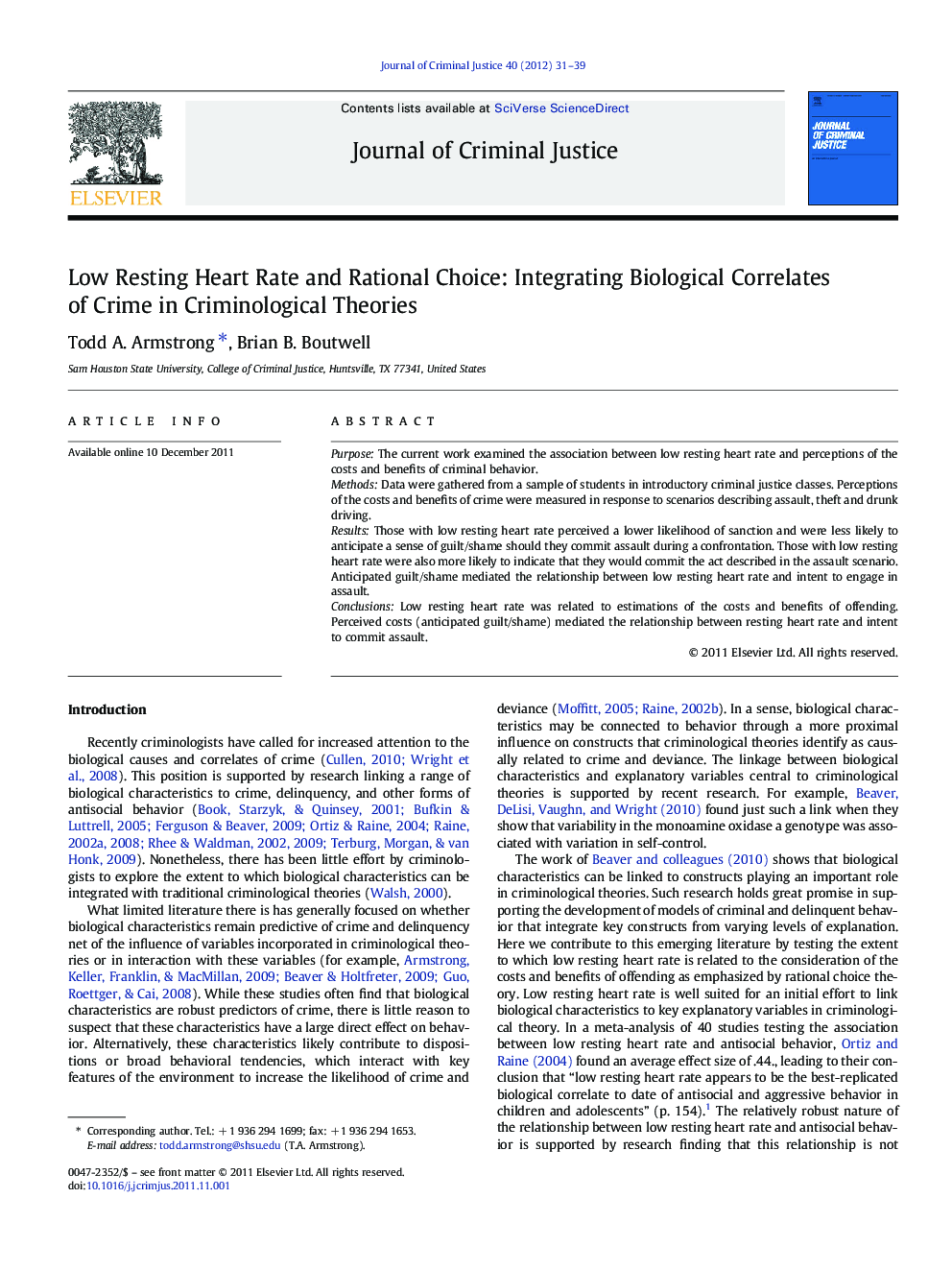| Article ID | Journal | Published Year | Pages | File Type |
|---|---|---|---|---|
| 882846 | Journal of Criminal Justice | 2012 | 9 Pages |
PurposeThe current work examined the association between low resting heart rate and perceptions of the costs and benefits of criminal behavior.MethodsData were gathered from a sample of students in introductory criminal justice classes. Perceptions of the costs and benefits of crime were measured in response to scenarios describing assault, theft and drunk driving.ResultsThose with low resting heart rate perceived a lower likelihood of sanction and were less likely to anticipate a sense of guilt/shame should they commit assault during a confrontation. Those with low resting heart rate were also more likely to indicate that they would commit the act described in the assault scenario. Anticipated guilt/shame mediated the relationship between low resting heart rate and intent to engage in assault.ConclusionsLow resting heart rate was related to estimations of the costs and benefits of offending. Perceived costs (anticipated guilt/shame) mediated the relationship between resting heart rate and intent to commit assault.
► We test the relationship between low resting heart rate and perceptions of the costs and benefits of offending. ► Those with low resting heart rate anticipate a lower risk of sanction and less guilt/shame as a result of offending. ► LRHR is related to an increased intent to commit assault. ► The relationship between low resting heart rate and intent to commit assault is mediated by guilt/shame.
